
 Marele istoric Gheorghe I Bratianu a previzonat exact desfasurarile actuale din Caucaz in cursul sau de la Universitate, din 1942-1943, in care trateaza si Expansiunea Sovietica la Marea Neagra. Fragmente din studiul sau, scos la lumina de abia anul trecut, sunt cuprinse in lucrarea "Dimensiunea Rasariteana a NATO - SUA, NATO, Romania si zona extinsa a Marii Negre", difuzata de Fundatia Pentru Romania la Summitul NATO de la Bucuresti. Cititi aici:
Marele istoric Gheorghe I Bratianu a previzonat exact desfasurarile actuale din Caucaz in cursul sau de la Universitate, din 1942-1943, in care trateaza si Expansiunea Sovietica la Marea Neagra. Fragmente din studiul sau, scos la lumina de abia anul trecut, sunt cuprinse in lucrarea "Dimensiunea Rasariteana a NATO - SUA, NATO, Romania si zona extinsa a Marii Negre", difuzata de Fundatia Pentru Romania la Summitul NATO de la Bucuresti. Cititi aici:SOVIET EXPANSSION AT THE BLACK SEA
Gheorghe I. Bratianu, 1942
The beautiful perspectives seen for the Black Sea question, freedom of navigation and freedom of straits were progressively shut down by the conditions foreseeing the present crisis and war. We stopped our presentation with the Lausanne Treaty.
This treaty opened large, beautiful perspectives, which were proved to be illusions. For the first time there was for the Black Sea a regime assimilating it with other seas, freedom of straits, not only for merchant ships but also for war ships. There was only one limitation: that foreign warships tons displacement was no to exceed that of countries bordering the Black Sea - which means actually the power of Russian fleet.
Although, compared to former provisions it was an important step forward into normalization of naval regime for this sea, as well having a very interesting perspective for our country, for which the Black Sea and straits regime was lately described as Romania’s lungs. The situation is still depending on some permanent factors, described by the American historian Gibbons in his history of the Ottoman Empire from 1916 in a from that I myself borrowed for the closure of my chapter on Genoa’s trade in the Black Sea: so long there will be water in this sea and wheat in Russia’s plains there will always be an issue over the straits. (...) In the meantime, something new came along, something that perturbs all data - as it perturbs all geopolitical problems of this world. I wouldn’t dare to say it is something permanent because we do not know if this new element will stay for centuries, it won’t change (...) we have to say it is about oil - this is the new element that came at the end of the last century, being more and more important for our times. There is already a search for replacement of this resource, preparing the world for the times when it will not be available anymore. The are some people saying even that this moment is not that far away: the children of our children may not know oil extraction. The development of oil industry concerns both extremities of the Black Sea. On one hand, the Eastern side of the Black Sea more and more regions are opened for oil extraction - it started from Baku, Apcheron Peninsula, towards Groznyi, North Caucasus and Maikop. This whole region seems to be a chain of extraction fields. Also, there is no secret that around Caspian Sea, these oil fields reach further East. Starting with the moment when Caspian resources flow to Batumi, the oil becomes a decisive element for the Black Sea, as it became through the development of oil industry in Romania, flowing towards Danube. (...) The much regretted Take Ionescu was right saying at a reunion of his party: “It will be a time when it will be proved that the heavy atmosphere pressing on Romania contains some oil vapours”. (...)
At the same time with the development of Romanian oil industry, across Black Sea developed the Caucasus oil industry. One of the authors that dealt with this issue tells us a conversation between Russian Tsar Alexander III and his finance minister; the Tsar was interested in the matter of oil, especially that in Baku an intense activity was going on and the monarch needed information on the subject, thus asking his minister, count Witte: “In the end, tell me, what is this oil? - Your Highness - replied the minister - oil is a liquid springing from the earth with a bad smell. - What kind of smell? Your Highness, smells like gold!” (...)
Unlikely Romania - due to its proportions - Russia defended better its interests. The majority of these interests in oil extraction in Caucasus region were in Russian hands even before the Great War - because Nobel Group itself was a Russian group. Foreign trusts were more and more interested about this situation, the oil industry was booming, and the flow of its products to the Black Sea explains largely the Russian interest for this sea and control of its straits. (...)
The Soviet expansion at the Black Sea between the wars is a new chapter. This problem has two sides: a political one, but also an economic side. (...) At one moment there was a real dumping of Soviet oil on the market. It may be said that oil was the main agent of soviet policy during the third decade of twentieth century. Also, oil explains how Soviet regime maintained itself and its financial capabilities in a country ravaged by wars and social experiments – as well as its raise on the world scene as a great power. The double action of spreading the soviet oil and communist propaganda was felt everywhere. (...)
(With the German advance after Hitler’s seizure of power) European politics entered a new phase, and this moment was used by Turkey and Soviets to bring a change in the Black Sea policy. Treaty of Lausanne was modified by a conference in Switzerland, Montreux, where on 20th July 1936 a new treaty was signed, which changed the provisions from Lausanne in the sense that the region around the Straits, declared neutral, was no longer under this status. Turkey had from then the right to fortify the Straits and used this right. The second change was the limitation of tons displacement for warships entering the Black Sea. A limit of 30.000 tons was agreed upon, which might be raised up to 40.000. The third point was the period for which the foreign warships were to stay in the Black Sea: 21 days. Fortifying the Straits was an advantage for Turkey, the limitations for foreign warships was an advantage for Russia. This was underlined by the Soviet minister Litvinov who stated: “The conference admitted, even not full-scale, the special rights of the states bordering the Black Sea, as well as the special geographic situation of the Black Sea where cannot be fully applied the general ideas on the absolute freedom of the seas”. (...)
Now let me come back to the ideas I used to open this class. I said that the Black Sea issue reminds us of the two permanent factors of our history: the mountains and the sea. The mountains - where we came from - and the sea - from where we can breath the air of freedom. I choose for this class the problem of the sea for two reasons. First, because this side of the sea brings us into the universal field: through the sea we enter the world history. The mountains side is a national problem, limited in space. In the second place, because I think this problem of the sea should be inscribed deeper in our conscience.
To speak about the mountains would be like knocking on open doors. There is no need to speak about the mountains problem, it is deeply rooted in our conscience; any Romanian has his thoughts targeted in this direction. The problem of the sea is a rational one. It is not for the first time we have this dilemma of heart versus reason. In 1916, we have chosen the heart, because the problem of the sea was not that important as it is today. On the seaside, we had a falling Russia, while today the sea problem contains the threat of a formidable power, Soviet Union of today. (...) The problem of the sea presses our judgement more than that of former generations. We are asked therefore to have an active conscience of our individual and collective duty towards these problems, to stay united, putting aside all factors bringing national and social differences. Only united we will be able to solve these problems and defend the very existence of our people.
Excerpted from a Black Sea Course for the University of Bucharest, 1942-1943, brought up to light only last year, in 2007
Gheorghe I. Bratianu, Romanian historian and politician, born in 1889, was a Professor at the University of Bucharest and a member of the Romanian Academy. He was killed in April 1953, while being imprison for his believes in a Communist extermination jail
http://www.nato-romania.ro/


































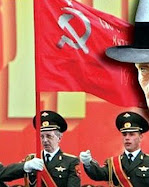










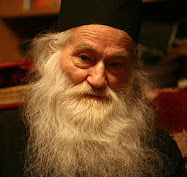






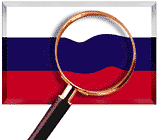




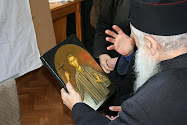
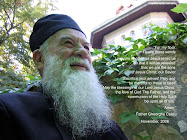

No comments:
Post a Comment